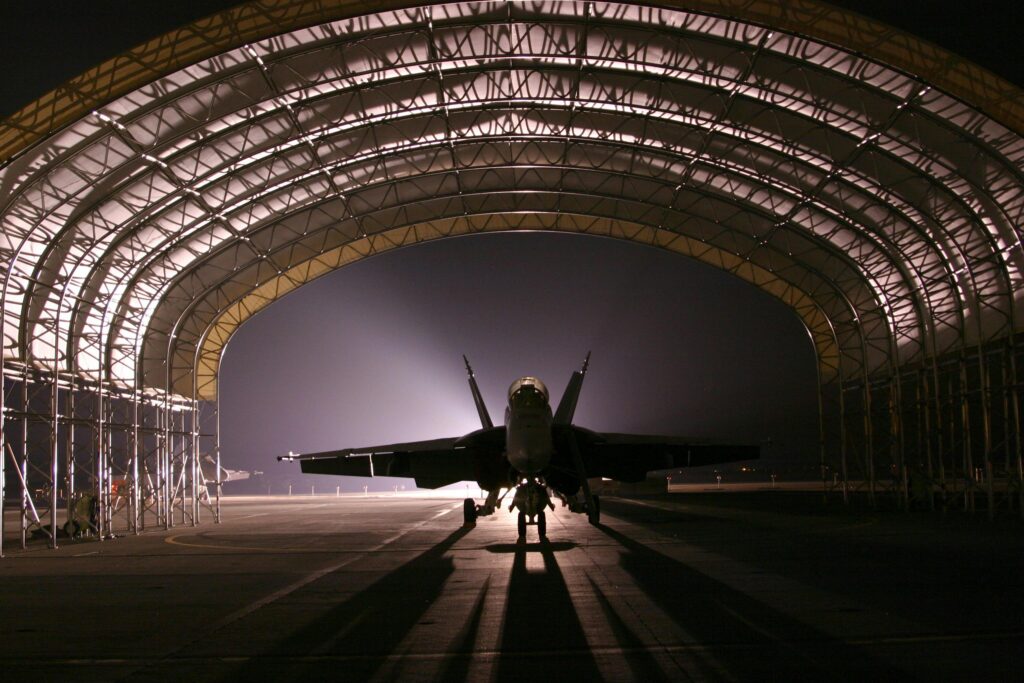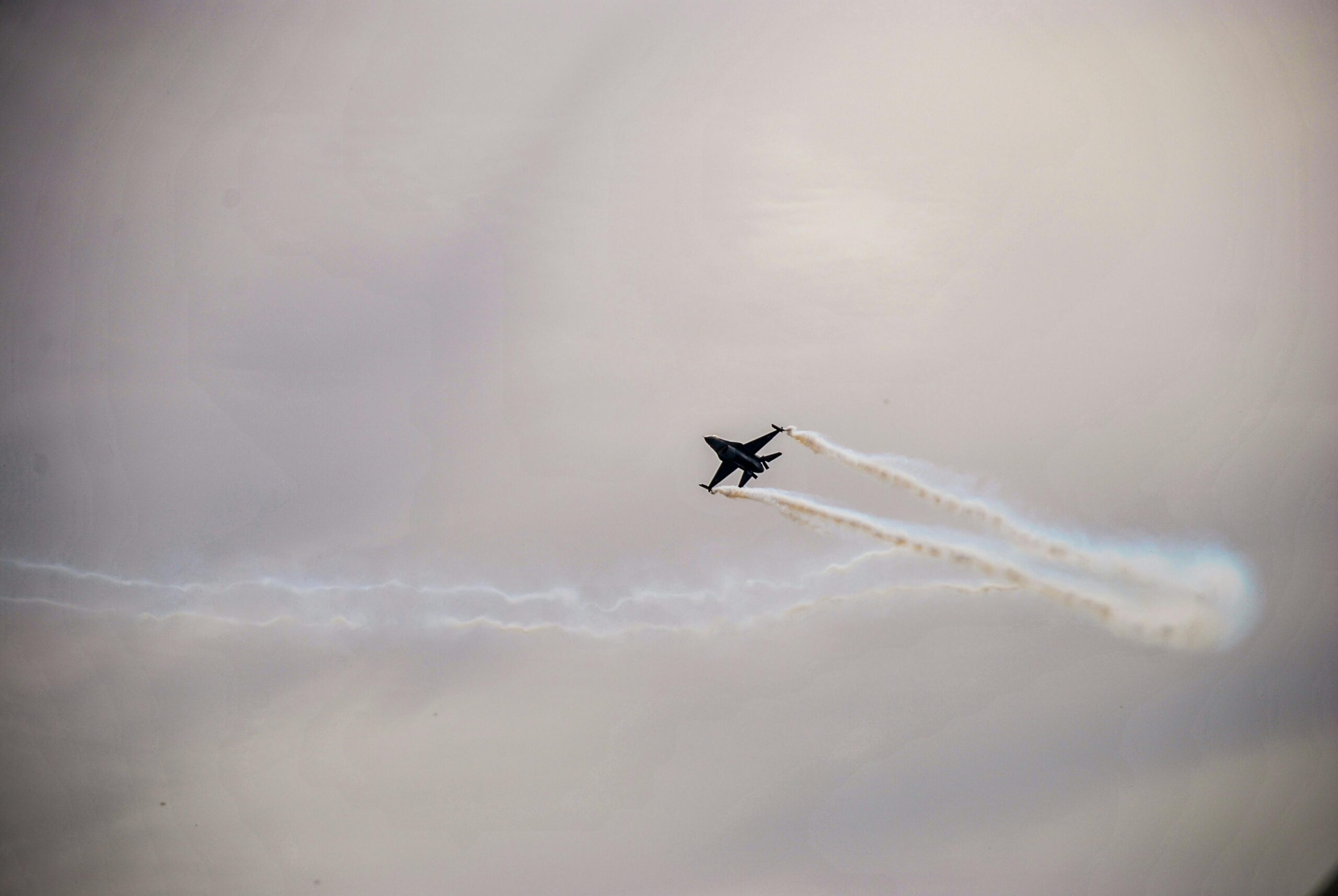With this in mind, what can we read into the recent 24th June 2022 cancellation of the UK’s Mosquito programme by the Ministry of Defence.1
To try to understand this decision, we firstly need to take a trip into the past…
The Mosquito programme was part of the wider Lightweight Affordable Novel Combat Aircraft (LANCA) programme. LANCA originated in 2015 as a series of Defence Science & Technology Laboratory (DSTL) investigations to assess technologies which could offer reductions in air vehicle cost and development time. This was then absorbed by the RAF Rapid Capabilities Office (RCO) as part of the Future Combat Air System Technology umbrella.

In what was, at the time, a departure from the normal approach for the UK defence institutions, a number of competing contracts were awarded for LANCA Phase 1. The three teams awarded contracts were Boeing Defence UK, Blue Bear Systems Research and Callen-Lenz. The Callen-Lenz “Team Blackdawn”, was a collaboration with Bombardier Belfast and Northrop Grumman UK. The competition aimed to provide a concept which offered significant reductions in cost and development time.
In the intervening time, the Bombardier Belfast site was taken over by Spirit AeroSystems and on 25th January 2021, Royal Air Force announced the Belfast Spirit AeroSystems team had been awarded a £30million contract for LANCA Phase 2, to design and manufacture a prototype under the banner of Project Mosquito.
So why has the programme been cancelled?
Looking at the stated aims of Phase 2, “to enable the rapid development of technology. By utilising the latest software development techniques and civilian aerospace engineering”1 and “the project will deliver dramatic reductions in costs and development timelines”1.
Also in the statement announcing the cancellation, Air Commodore Jez Holmes, Head of the Rapid Capabilities Office (RCO) said:
“Through Project Mosquito and other experimentation activities the Royal Air Force has made substantial progress and gained significant value in understanding and harnessing a range of future uncrewed capabilities. This decision maximises the learning accrued to date and enables a change of direction for the LANCA programme. The RCO will now quickly launch activities to aggressively pursue the RAF’s unchanged firm commitment to integrate advanced uncrewed capabilities into the near-term force mix with more immediate beneficial value.”2
One potential conclusion from the statement is that the programme has simply run out of money, and DSTL and the RAF RCO were not confident enough in the progress to assign additional funds. There certainly has not been an announcement of a return of funds.
What is certain is the need for a loyal wingman capability still exists. Current conflicts are demonstrating that legacy 4th generation technologies and doctrines are no match for multi layered air defence networks. As a result, a number of key principles are forming to defeat the threat, namely stealth and drone swarming3.
So it is with impeccable timing that BAE Systems recently entered the conversation publicly with two concepts, UAS Concept I and UAS Concept II, unveiled at Royal International Air Tattoo (RIAT) 2022:
- The first being the larger, more stealthy type, very similar in size and proposed mission profile to mosquito.
- The second being a much smaller, potentially attritable platform, likely a response to statements of mosquito being cancelled in favour of cheaper and smaller alternatives. The appeal of the smaller and cheaper platforms being that they lend themselves more towards swarm tactics.

Time will now tell if either of these (or other) concepts are taken forward but the ball is very much in the court of the MoD, DSTL and the RAF RCO.
Speaking ahead of the Farnborough International Air Show, the Chief of the Air Staff, Air Chief Marshal Sir Mike Wigston, said that the next stage of the Mosquito replacement effort will be launched in the third quarter of 2022, as his service seeks to take ‘in another direction’ the Lightweight Affordable Novel Combat Aircraft (LANCA) programme that spawned the Mosquito.
“Our work to explore uncrewed aircraft and how they might augment F-35 and Typhoon continues. The work has been challenging, but we have learned and gained a huge amount from our Mosquito programme around digital design and novel manufacturing techniques.
“We’ve decided that our focus now should be on systems that can be operationalised much more quickly, and that is why we have drawn the Mosquito programme to a close. [However], we are moving on fast, and… in the autumn we will unveil a series of targeted challenge areas that we want to drive forward at pace with industry, our science and technology partners, and internationally too.”
With the flurry of announcements from Farnborough International Air show, it is clear that for years to come the UK defence industry is going to be a very busy place.
Written by: Morson Projects’ Principal Engineer, Chris Summers
- https://www.gov.uk/government/news/royal-air-force-rapid-capabilities-office-announce-review-of-project-mosquito
- https://www.gov.uk/government/news/30m-injection-for-uks-first-uncrewed-fighter-aircraft
- https://www.gov.uk/government/news/swarming-drones-concept-flies-closer-to-reality